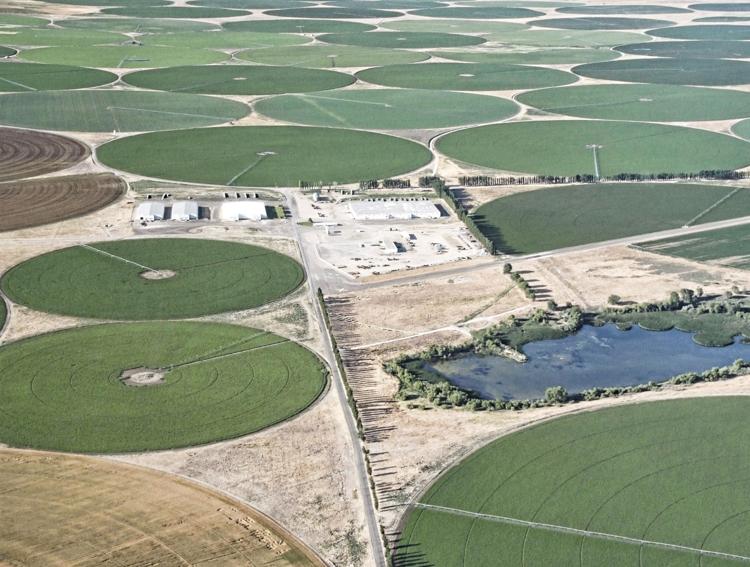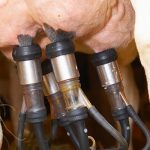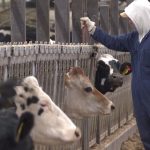
Threemile Canyon Farms in Boardman already uses waste from about 30,000 cows to generate electricity on site using a methane digester built in 2012. Now the farm wants to expand the facility and install new equipment that will convert the methane into “pipeline quality” natural gas.
But first, the Oregon Department of Environmental Quality must OK an amended air quality permit for the proposal. Environmental groups are asking DEQ to deny the permit, arguing that manure-to-gas is inherently “dirty” and a false solution to climate change.
Marty Myers, general manager of Threemile Canyon Farms, said the dairy has an agreement with a buyer in California for the gas, which it will use to make transportation fuel. Myers did not discuss specifics of the contract.
“This project is creating another commodity that is valued by the public and by certain companies that are out there doing business,” Myers said. “All we’re doing is giving them a raw product.”
Opened in 2001, Threemile Canyon Farms is a sprawling 93,000-acre operation with three dairies that supply milk to Tillamook Cheese at the nearby Port of Morrow. The farm often touts its closed-loop system as a model for sustainability, recycling manure as fertilizer to grow a variety of crops from animal feed to organic blueberries.
Part of the system also includes an anaerobic digester to capture methane emissions from the manure, which Threemile Canyon uses to fire three turbines capable of generating 4.8 megawatts of electricity.
Instead of making electricity, the farm wants to process the methane into “pipeline quality” natural gas, removing carbon dioxide, water vapor and other impurities.
Myers said the farm is working with Equilibrium Capital, a Portland investment firm, to fund the $30 million conversion.
“They like this type of project,” Myers said. “It’s good for the environment.”
In the meantime, DEQ must also approve a modification of the facility’s air quality permit, which regulates emissions of greenhouse gases and other pollutants.
Laura Gleim, DEQ spokeswoman, said the modified permit does not increase emissions limits. In fact, it currently allows for up to 74,000 tons of greenhouse gases per year — equivalent to 57,608 passenger cars. Yet Threemile Canyon emitted just 32,529 tons in 2017.
However, Gleim said the permit only covers emissions at the digester, not the dairy itself. In objections filed with DEQ, a coalition of environmental groups said the agency should take into account all emissions at Threemile Canyon in its permitting.
The coalition includes Columbia Riverkeeper, Friends of Family Farmers, Friends of the Columbia Gorge, Humane Voters Oregon, Food & Water Watch, Center for Food Safety, Center for Biological Diversity, Animal Legal Defense Fund, Farm Forward and Factory Farm Awareness Coalition.
Amy van Saun, senior attorney at the Center for Food Safety in Portland, maintains the project will only further endanger air and water quality in Morrow County and the Columbia River Gorge.
“Instead of granting this permit, we demand that the state take action to prevent toxic and environmentally damaging air emissions from mega-dairies like Threemile Canyon, and to stop the continued pollution of groundwater with dangerous levels of nitrates, a problem only exacerbated by methane digesters and the expansion of mega-dairies in Oregon,” van Saun said.
The groups’ comments come as the Oregon Legislature recently declined to advance several bills that would treat large dairies as industrial facilities, spurred in part by the year-long debacle involving another large dairy near Boardman, Lost Valley Farms, which shut down earlier this year.
“If Oregon approves this proposal, it will be a step backward for our commitment to stop climate change and will further entrench the factory system of livestock production,” said Tarah Heinzen, senior attorney at Food & Water Watch in Washington, D.C.
Gleim said DEQ is reviewing all comments, and there is no timetable for the agency to issue or deny a permit. Myers said the farm hopes to move forward on the project by mid-summer.

























